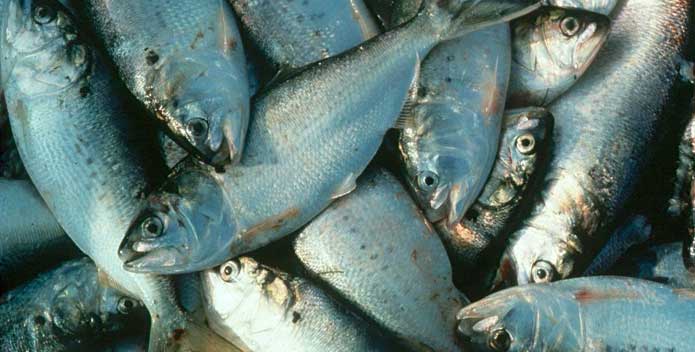The following was first published in The Virginian Pilot.
Recent news about Omega Protein spilling 400,000 "presumably dead" menhaden fish from torn nets, the latest in the company's 13 fish spills in Virginia since 2018, is an important reminder of the need to better manage the Chesapeake Bay's menhaden population.
But this also raises a deeper question: Should a Canadian-owned company with an ever-growing list of environmental and regulatory violations continue to harvest this extremely valuable public resource in near-total secrecy about their catch? This question is even more relevant as Omega Protein refuses to cooperate with scientists studying the bay's menhaden population.
In recent years, Omega Protein has paid millions in fines and settlements for multiple Clean Water Act violations and misrepresentations regarding its government loans. In 2019, the U.S. Department of Commerce nearly shut down all menhaden fisheries in Virginia after Omega Protein exceeded Chesapeake Bay harvest limits, putting the company's own workers and their livelihoods on the line. Earlier this month, Virginia's fisheries regulators warned that Omega Protein is once again on track to exceed the Chesapeake Bay harvest cap.
Menhaden are a nutrient-packed fish, making them a coveted food for larger fish, birds, whales and dolphins. Omega Protein's fishing shows little respect for menhaden's place in the food chain. Its planes spot schools of thousands of menhaden from the air. Its ships then deploy smaller net boats to encircle entire schools. The company then "reduces" the thousands of tons of captured menhaden to make fish oil pills and feed for animals and farmed salmon.
Virginia is the only state left on the East Coast with an industrial menhaden fishery, and Omega takes about 90% of all menhaden harvested here. There have long been concerns from anglers, fisheries scientists, and conservationists that harvesting so many in a relatively small area does not leave enough to feed the numerous predators that depend on them.
After profiting for so long from this resource, Omega Protein has the responsibility to work cooperatively with regulators and scientists to avoid harming the environment and other Chesapeake Bay fisheries. Instead, the company has refused to share information on its catch with the Virginia Institute of Marine Science and University of Maryland Center for Environmental Science.
By withholding data, Omega Protein has spent the past year thumbing its nose at efforts by the National Oceanic and Atmospheric Administration's Chesapeake Bay Office to develop an estimate of the total number of menhaden in the bay. Why? Perhaps they are worried that results will show their intensive fishing in Chesapeake Bay is not sustainable.
Right now, Omega Protein is also hoping to keep its coveted seafood certification from the Marine Stewardship Council, which is conducting a routine audit. This should have Omega concerned. In obtaining this seafood certification, Omega Protein promised to support efforts to develop a better understanding of the role menhaden play in the ecosystem. But Omega is unwilling to share catch data with scientists working to do just that. This should be a red flag to the auditors.
Despite their history of repeated violations, intentional excess harvest, and unaccounted loss of menhaden, Omega Protein now boasts that they "are closely monitoring the fishery, and will follow all Virginia laws relating to the bay cap."
A robust menhaden population helps everyone from those who harvest menhaden, to recreational anglers, to charter boat captains, to whale watching tours and others in the water-based tourism industry—not to mention the myriad of other species that rely on them as food.
It's time for Omega Protein to step up and become more transparent by providing their harvest data to support scientific research, proving they really want a healthy ecosystem in the Chesapeake Bay. If they won't play along, many Virginians may think differently about allowing a foreign-owned company to take our natural resources.




